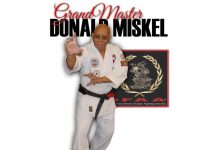Wing Chun is an incredible art that when studied has far reaching effects on one’s health. Right from the early stages of learning in wing chun the student is learning proper breathing, balance, independent arm movements, proper use of energy, sensitivity, strength, proper use of body structure, and relaxation all of which have effects on ones health and mental well being. Usually as one ages the natural progression is that of deterioration. As we get older our minds usually becomes starved for development. Wing Chun has a reverse effect on this. When we use and exercise our brains regularly we stimulate the brain in ways similar to mental weight lifting.
My kung fu brother Murat Kaplan has a wonderful article on Wing-Chun Kung-Fu & Brain Development and in his article he addresses the fact that the brain consumes about 1/4th of the body’s total oxygen intake. So right away you can see how proper breathing is going to effect the brain. Many studies have been done in our day to expound on the health effects of proper breathing. Just the stance alone is going to help promote proper breathing.
The stance in the first form added with the movement in the second form is also going to create a proper balance. I could go on and on about balance in life and the effects that it has on one’s mental health. One of the greatest challenges in life is that of balancing the priorities of our lives. We have a much greater peace about us when we keep life in balance.
The independent arm movements that wing chun trains has a very interesting effect on the brain. Wing chun contains many movements that work across the body. When training these movements this actually has the effect of building better interhemispheric communication within the brain. The result of this creates a unique brain development that increases intelligence, memory, creativity, and concentration. Murat also addresses this more scientifically in his article.
Through training of drills, dan chi sao, and chi sao students train sensitivity. The training of sensitivity will promote communication between the nerves and the brain. Much like a blind person will depend on their other senses to learn to see a wing chun student will learn to depend on what they feel or sense through touch to learn to see in a much clearer manner. The more we train this sensitivity the greater the communication becomes between our brain and our nerves and the more complex and greater our skills will become.
Relaxation has far reaching effects on us mentally. Stress is a huge factor in poor health for many in this world today. So relaxation is of course promoting better health. Beyond the obvious better health when training to stay relaxed you are in actuality giving yourself permission to respond to the issues of life. When someone has trained their mind to focus and relax they are training their mind to have the ability to respond. This goes far beyond the world of self defense and into every aspect of life. Life throws all kinds of circumstances our way and not everyone has trained the ability to respond to these circumstances. The more training someone does the more relaxed they can become and the less tension they will have.
When studying the basic steps of learning you will find that students go through three basic steps regardless of what they are studying. First they have to observe and copy what they see. Second they don’t necessarily have to copy someone, but they have to put a measure of mental thought into what they are doing. They have learned how but they still have to think about what they are doing. And thirdly it becomes subconscious. It is intrinsic. The student no longer has to think about what they are doing it just happens. Some people liken it to muscle memory but I like to refer to it as subconscious thought. Your brain is responding in a reflexive manner that doesn’t require a mental thought process.
Wing chun is such a well rounded fighting system that it directly addresses all these phases of learning. We have forms and drills that we learn to get us through that first phase of learning. You have to have something to copy or your learning will be stifled. But then on the flip side of that if all you ever do is forms then you never put them to use. We have exercises like free chi sao to have a constant challenge of developing sensitivity. Each person you touch hands with will give you a new opportunity to develop sensitivity in a new way.
Because wing chun is a system that we can study well into our advanced years of life it will help us to gain greater intelligence, better memory skills, higher levels of concentration, and more creativity. It is a constant exercise for the brain in many different ways. The result is better health, a higher level of confidence, and of course the ability to defend one’s self in a very effective way.
By Angela Minerva






